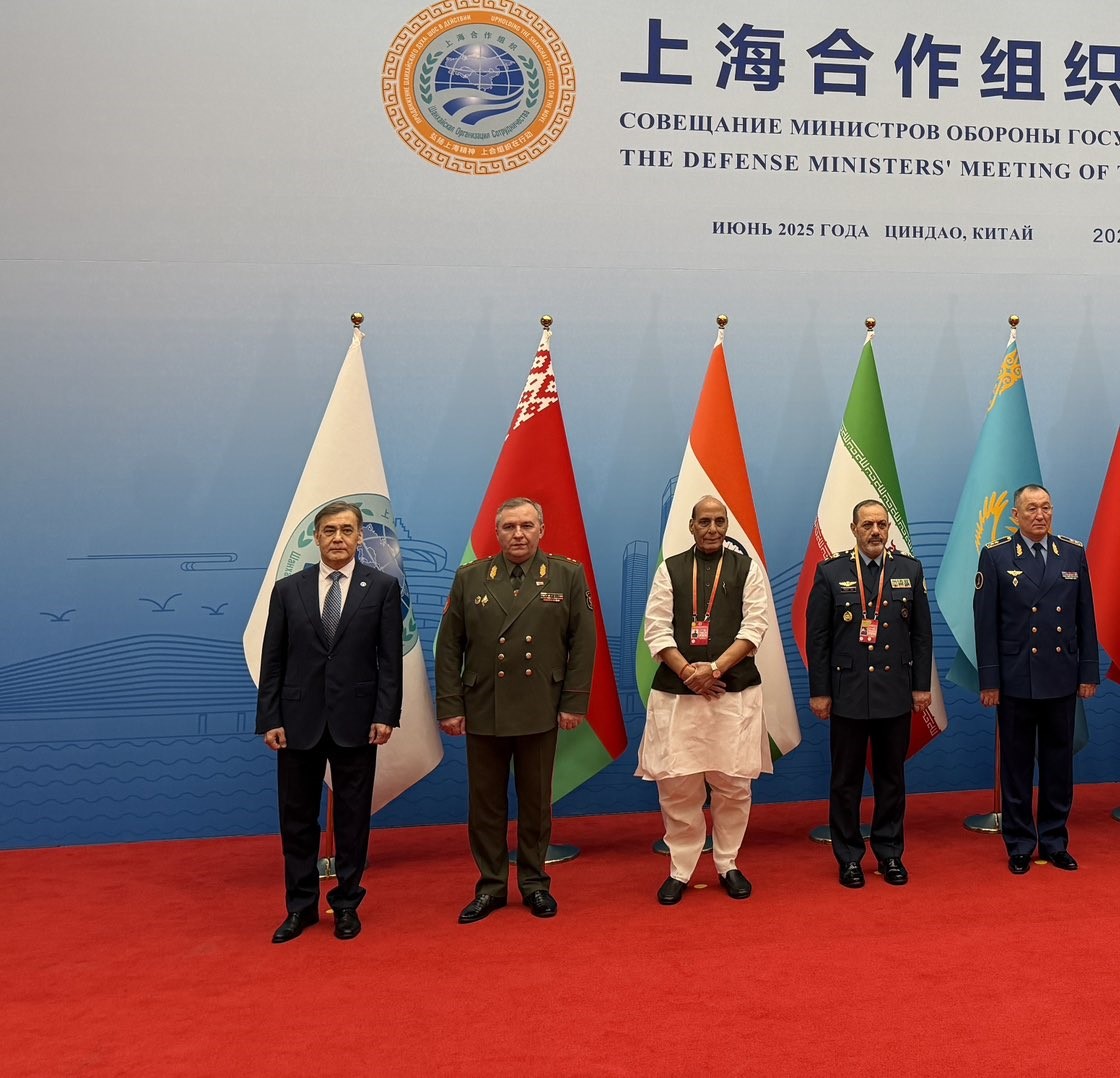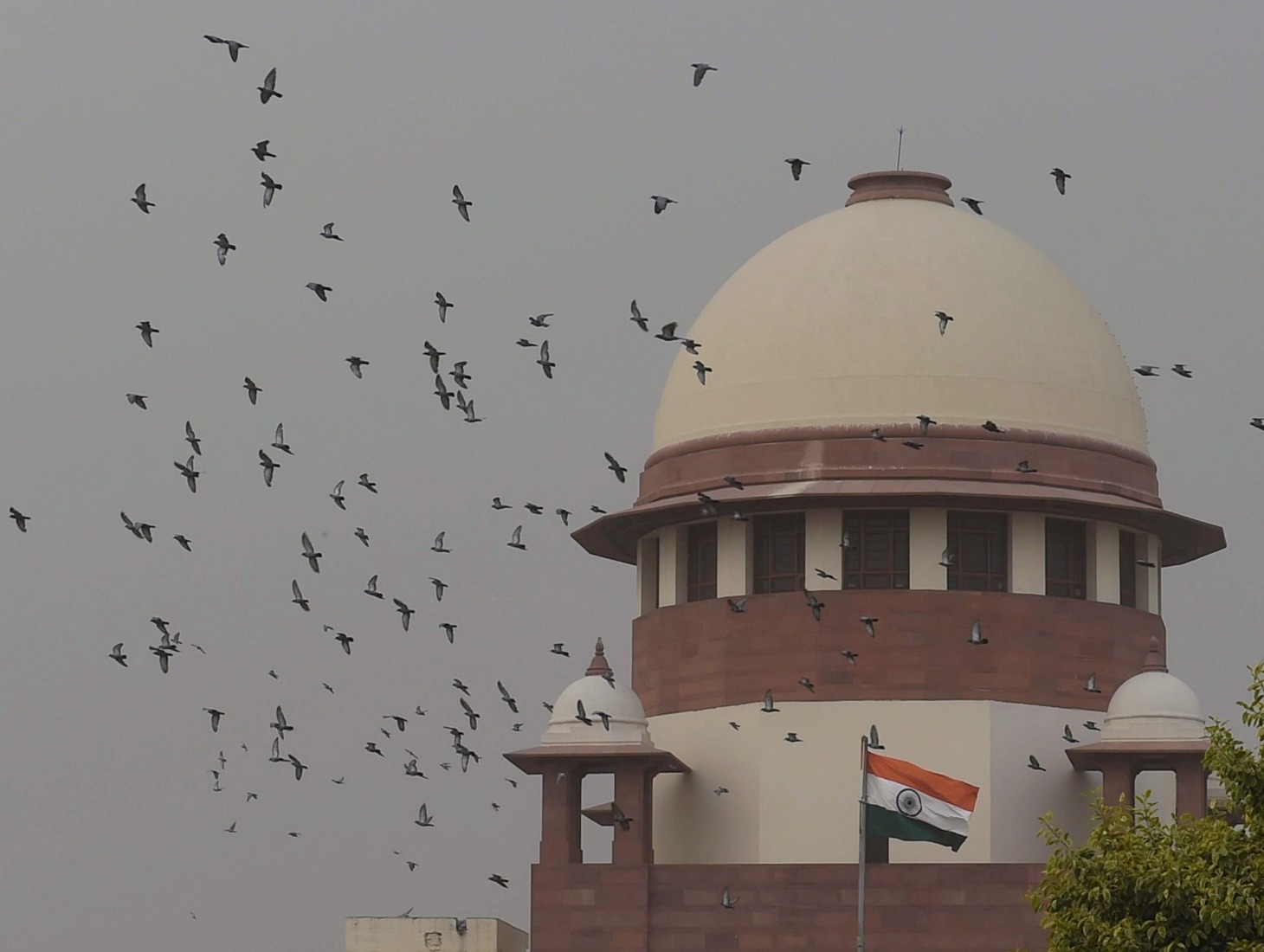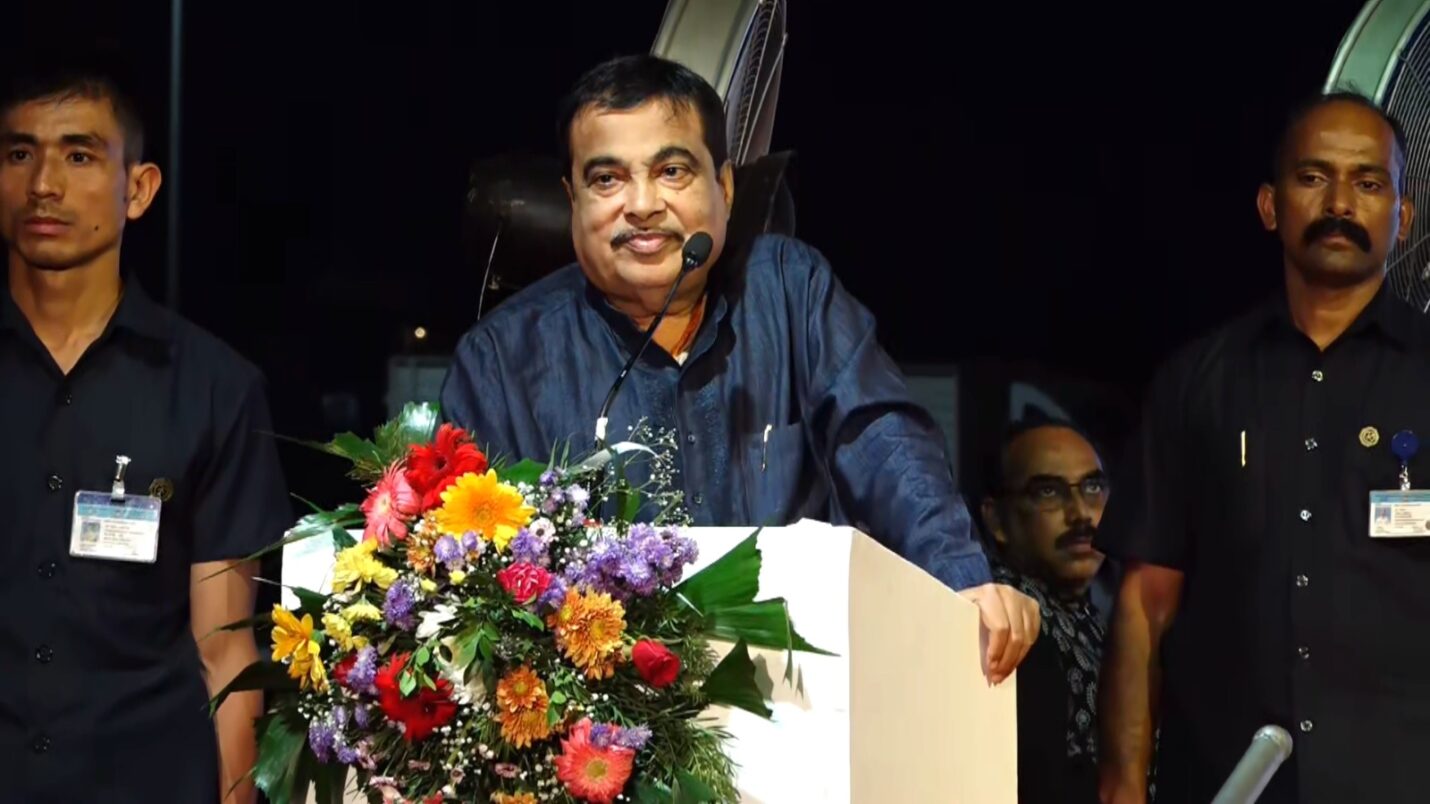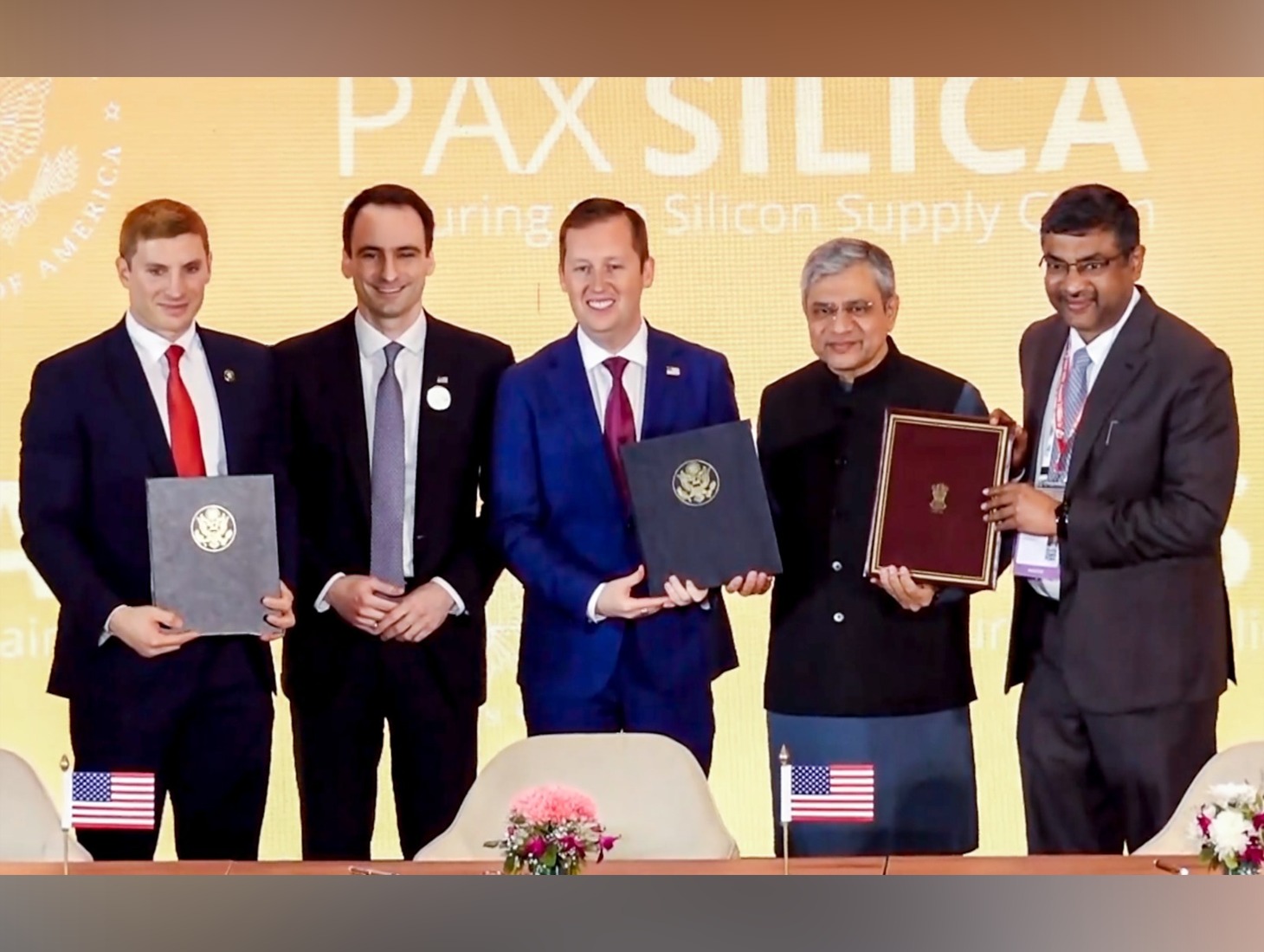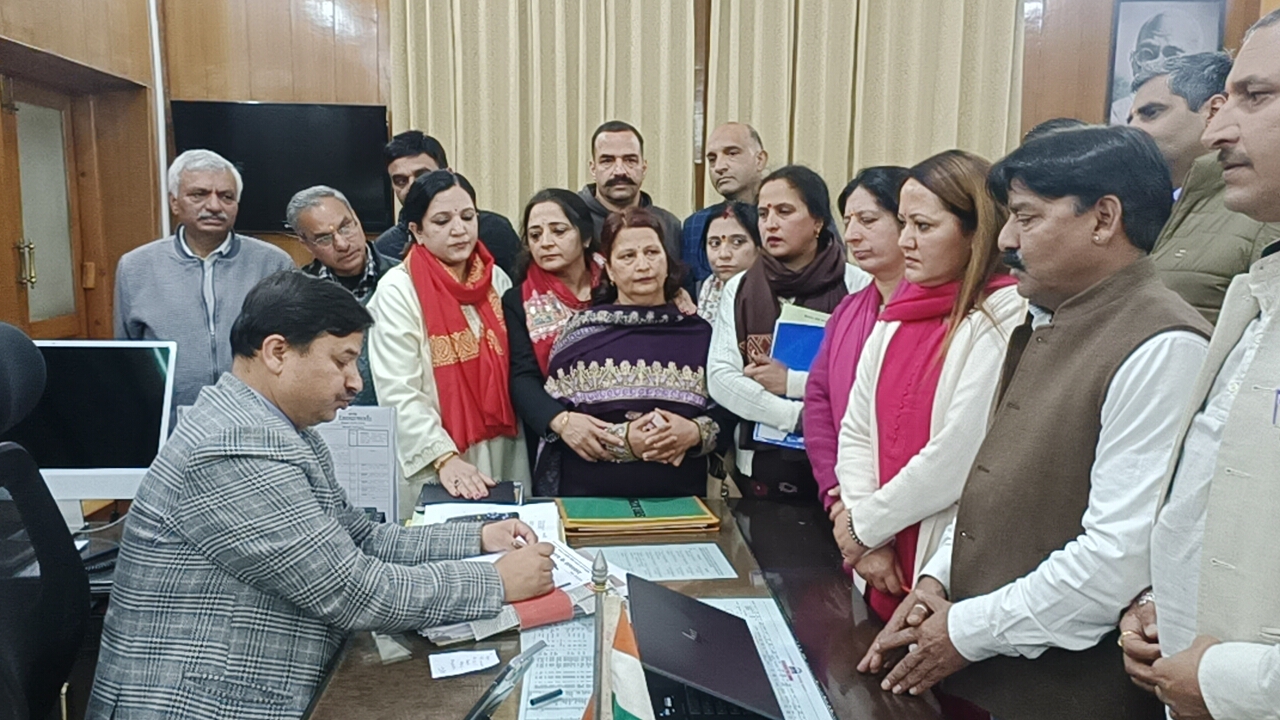The North New
New Delhi, June 27
India has refused to endorse a joint communique of the Shanghai Cooperation Organisation (SCO) defence ministers, citing sharp divergences over counter-terrorism language that failed to name and shame nations sponsoring terror, sources said.
Defence Minister Rajnath Singh, attending the ministerial meet in Qingdao, China, stood firm on India’s long-held position on terrorism, asserting that peace and prosperity “cannot co-exist” with the continued threat of terror and the proliferation of weapons of mass destruction in the hands of non-state actors.
The strongly-worded address, made in the presence of SCO Secretary General, Director of the Regional Anti-Terrorist Structure (RATS), and defence ministers from member states including China and Pakistan, marked a rare open challenge to the consensus format of the SCO. “The biggest challenges faced by our region stem from peace deficits, trust deficits, and increasing radicalisation and terrorism. These must be tackled head-on,” Singh said.
India’s decision to abstain from signing the joint declaration came after strong objections to wording that, according to New Delhi, diluted the SCO’s stated commitment to combat terrorism and did not adequately reflect concerns about cross-border terror networks.
“Those who sponsor, nurture and utilise terrorism for narrow ends must bear the consequences,” Rajnath Singh told the forum. “Some countries continue to use terrorism as an instrument of state policy while offering safe havens. There should be no room for such double standards. SCO should not hesitate to call out such behaviour.”
The Defence Minister’s remarks were seen as a clear swipe at Pakistan, which India accuses of harbouring terror groups, and at China for shielding Islamabad from international scrutiny at forums such as the UN Security Council.
Rajnath Singh also referenced “Pahalgam” in his address, though officials did not elaborate. It is likely he was alluding to a recent terror-related incident or security concern in the Jammu and Kashmir region.
He asserted that India launched Operation Sindoor in response to the heinous terror attack in Pahalgam, Jammu and Kashmir, exercising its right to defend against terrorism and pre-empt as well as deter further cross border attacks. “During the Pahalgam terror attack, victims were shot after they were profiled on religious identity. The Resistance Front, a proxy of UN-designated terror group Lashkar-e-Taiba (LeT) claimed responsibility for the attack. The pattern of Pahalgam attack matches with LeT’s previous terror attacks in India. India’s zero tolerance for terrorism was demonstrated through its actions. It includes our right to defend ourselves against terrorism. We have shown that epicentres of terrorism are no longer safe and we will not hesitate to target them,” he said.
He reiterated the need to hold the perpetrators, organisers, financiers and sponsors of reprehensible acts of terrorism, including cross-border terrorism, accountable and bring them to justice. He termed any and every act of terrorism as criminal and unjustifiable regardless of their motivation whenever, wherever and committed by whom-so-ever. The SCO members must condemn this evil unequivocally, he said, reaffirming India’s resolve to fight terrorism in all its forms and manifestations.
He called for proactive steps to prevent the spread of radicalisation among the youth, acknowledging the significant role of the RATS mechanism in tackling the challenge. “The joint statement of the Council of SCO Heads of State on ‘Countering Radicalisation leading to Terrorism, Separatism and Extremism’ issued during India’s Chairmanship symbolises our shared commitment,” he said.
Rajnath Singh underscored the importance of countering the technology used by terrorists including drones for cross-border smuggling of weapons and drugs, pointing out that traditional borders are no longer the sole barriers against threats in this interconnected world. He stressed that the world faces an intricate web of challenges that range from transnational terrorism and cyber-attacks to hybrid warfare. These threats, he said, do not respect national boundaries, and demand a unified response rooted in transparency, mutual trust, and collaboration.
Highlighting SCO’s crucial role in the current uncertain geopolitical scenario, Raksha Mantri stated that the member countries contribute around 30 per cent of the global GDP and about 40 percent of the world’s population resides in them. He described the creation of a safe, secure and stable region as a collective stake, which can contribute towards progress and improvement of peoples’ lives.
Rajnath Singh further said globalisation has been losing momentum, and the weakening of multilateral systems has made it harder to address urgent challenges, from maintaining peace and security to rebuilding economies after the pandemic. He added that competition between major powers is intensifying, with trade and technology being increasingly used as tools in geopolitical rivalries. “India believes that reformed multilateralism can help build cooperation to prevent conflict between countries by creating mechanisms for dialogue and collaboration,” he said.
He voiced India’s commitment to increasing its connectivity with Central Asia. “Better connectivity not only enhances mutual trade but also fosters mutual trust. However, in these efforts, it is essential to uphold the basic principles of the SCO charter, particularly respecting the sovereignty and territorial integrity of member states,” he said.
Rajnath Singh added that India has been consistent and steadfast in its policy in support of peace, security and stability in Afghanistan. He enumerated the immediate priorities in Afghanistan including providing humanitarian assistance to its people and contributing to overall developmental needs. As Afghanistan’s largest regional development partner, India continues to implement capacity-building initiatives for the Afghan people, he said.
He also shared insights on how non-traditional security challenges like pandemics, climate change, food & water security, and associated societal disruptions recognise no boundaries and impact peoples’ lives. He stressed that these challenges cannot be addressed without responsible policies and cooperation among nations. “India’s initiative on Coalition for Disaster Resilient Infrastructure aims not only at promotion of disaster resilient infrastructure, but also infrastructure risk management, standards, financing and recovery. It is also an example of how countries are coming together to create and share capabilities to deal with humanitarian assistance & disaster relief,” he added.
Rajnath Singh further said that India’s vision of SAGAR (Security and Growth for All in the Region) and MAHASAGAR (Mutual and Holistic Advancement for Security and Growth Across Regions) are testament to create a conducive environment for growth and economic development, with security and stability being the most essential components. He underlined India’s support to greater cooperation and mutual trust among SCO members, urging them to collectively aspire to fulfill the aspirations and expectations of the people while tackling today’s challenges. “We must all be in lockstep in our endeavour in strengthening stability and security in our neighbourhood,” he said.
Defence Minister highlighted that India seeks to build consensus on dealing with global challenges on the basis of the motto ‘One Earth, One Family, One Future’, which is founded on its civilisational ethos of Vasudhaiva Kutumbakam (the world is one family). Mutual understanding and mutual benefit must be our guiding principles, he said.












